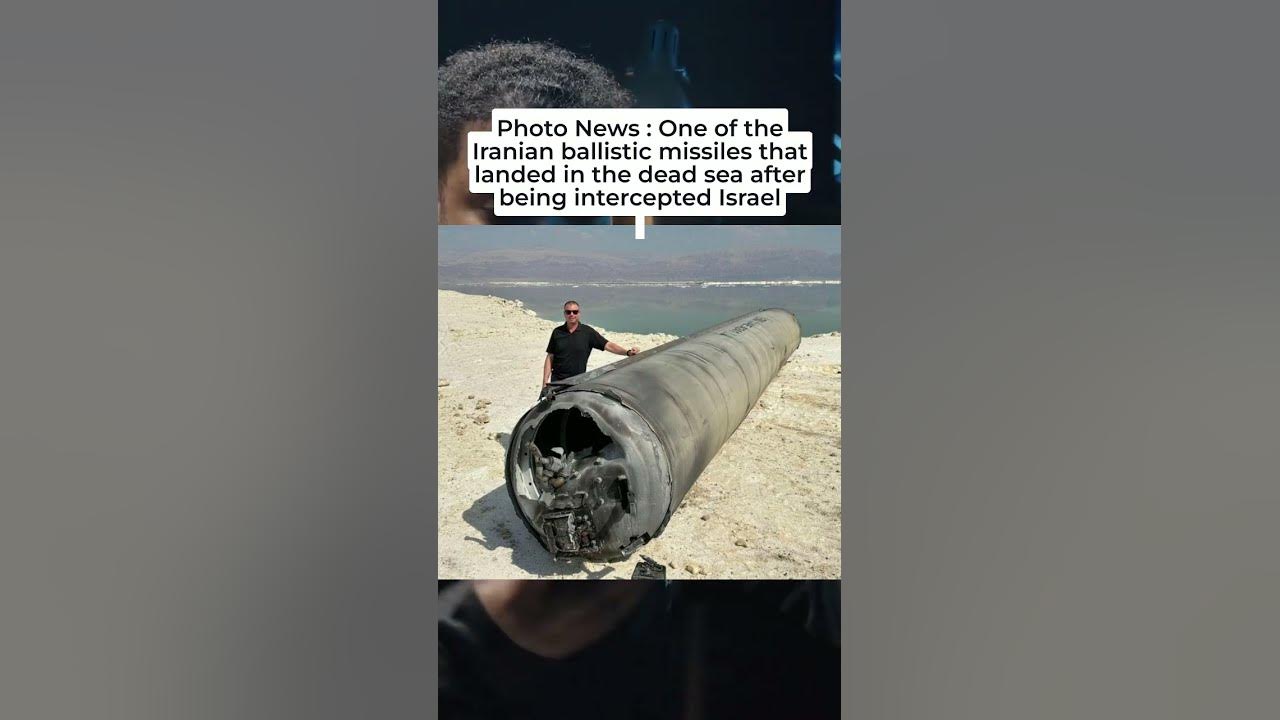Iranian Ballistic Missile Intercepted by Israel Lands in the Dead Sea
In a dramatic turn of events, one of the Iranian ballistic missiles that was launched towards Israel was intercepted and ultimately landed in the Dead Sea. The missile, believed to be a Shahab-3 medium-range ballistic missile, was reportedly fired by the Iranian Revolutionary Guard Corps in retaliation for recent airstrikes carried out by Israel in Syria. The missile was launched from a location near the Iranian city of Isfahan and traveled over 1,000 kilometers before being intercepted by the Israeli military’s Iron Dome defense system.
The interception of the Iranian missile by Israel’s Iron Dome system marks a significant milestone in the ongoing conflict between the two countries. The Iron Dome system, which is designed to intercept and destroy incoming missiles in mid-air, has proven to be a highly effective defense system in recent years. The successful interception of the Iranian missile demonstrates Israel’s commitment to protecting its citizens from external threats and its ability to respond swiftly and decisively to acts of aggression.
The fact that the intercepted missile ultimately landed in the Dead Sea is a testament to the precision and effectiveness of Israel’s defense systems. The Dead Sea, a saltwater lake located at the lowest point on Earth, is bordered by Israel, Jordan, and the West Bank. The area is a popular tourist destination known for its unique mineral-rich waters and stunning natural beauty. Fortunately, no injuries or damages were reported as a result of the missile landing in the Dead Sea, as the area is largely uninhabited and remote.
The incident has raised concerns about the escalating tensions between Iran and Israel and the potential for further conflict in the region. Iran has long been a vocal critic of Israel and has supported various militant groups in the region, including Hezbollah in Lebanon and Hamas in Gaza. The Iranian government has repeatedly called for the destruction of Israel and has vowed to retaliate against any perceived aggression from the Israeli military.
In response to the missile launch, Israeli Prime Minister Benjamin Netanyahu issued a stern warning to Iran, stating that Israel would not hesitate to defend itself against any threats to its security. Netanyahu emphasized that Israel would continue to take all necessary measures to protect its citizens and ensure the safety and security of the country. The Israeli military has been on high alert in recent weeks following a series of airstrikes in Syria targeting Iranian-backed militias and weapons shipments.
The interception of the Iranian missile comes at a time of heightened tensions in the region, with the United States and other Western countries closely monitoring the situation. The Biden administration has expressed support for Israel’s right to defend itself and has called on Iran to cease its provocative actions and refrain from further aggression. The United Nations Security Council is expected to convene an emergency meeting to discuss the incident and explore possible diplomatic solutions to de-escalate the situation.
As the situation continues to unfold, it is clear that the conflict between Iran and Israel remains a complex and volatile issue with far-reaching implications for the entire region. The interception of the Iranian missile by Israel’s Iron Dome system underscores the importance of maintaining strong defense capabilities and effective deterrence measures in the face of external threats. The international community must work together to promote peace and stability in the Middle East and prevent further escalation of hostilities between Iran and Israel..
